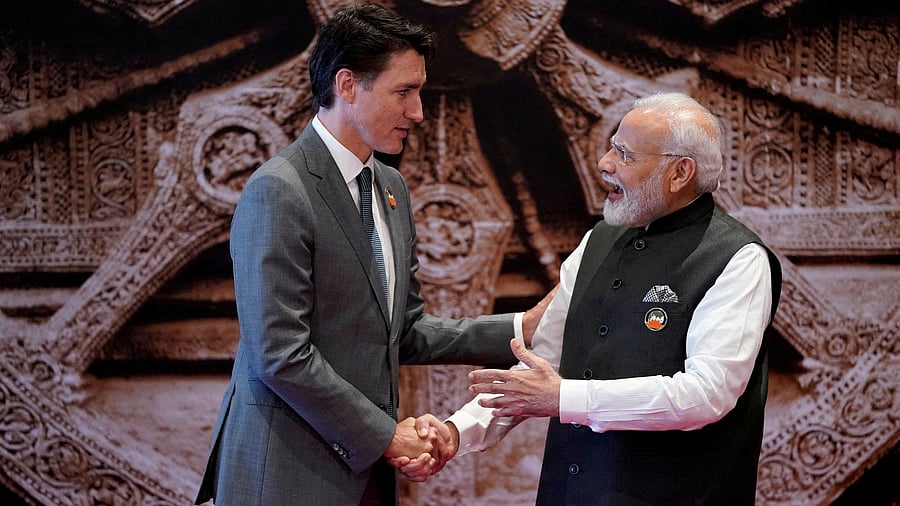
File photo of PM Narendra Modi with Canadian counterpart Justin Trudeau for the G20 Summit, in New Delhi.
Credit: Reuters File Photo
With bad blood between India and Canada brewing amidst allegations levelled by the North American country's prime minister, Justin Trudeau, about India’s part in the killing of Khalistani terrorist Hardeep Singh Nijjar, both countries are now locked in a face-off.
However, a stroll along the history side reveals that the current situation bears a stark resemblance to the India-Canada ties when Pierre Elliott Trudeau, Justin Trudeau’s father, was the Canadian PM.
Pierre Elliott Trudeau had refused to extradite Air India bombing mastermind Talwinder Singh Parmar, who had escaped to Canada after killing two policemen, to India. The request made by Indian PM Indira Gandhi in 1982 was turned down stating that “India was insufficiently deferential to the Queen.” The Khalistani movement, which had barely made its presence felt until then, deep rooted following this.
Pierre Elliott Trudeau had toured India for almost a week in 1971 and then-PM Indira Gandhi visited Canada in June 1973, in a move meant to forge personal ties.
Parmar, founder and leader of Babbar Khalsa, executed the bombing of the Air India Kanishka Flight 182 in June 1985 in which all 329 on board were killed, blotting a dark mark over India-Canada ties.
India’s first nuclear explosion for peaceful purposes also added to the bitterness in the relations.
US and Canada joined hands for India's civil nuclear programme for cheaper nuclear power and the CIRUS nuclear reactor, which was commissioned in July 1960 and built under Homi Jehangir Bhabha’s guidance.
Canada had elaborated that the programme was aimed for peaceful purposes and that any violation on India’s part would mean suspension of nuclear cooperation.
According to a Stanford University research paper, India detonated a nuclear weapon at Pokhran test site using plutonium from the CIRUS reactor in 1974. The explosion was referred to as a ‘peaceful nuclear explosion’ and did not violate the agreement terms with Canada but the latter was quick to withdraw all of its backing for India’s nuclear energy programme. A Columbia University research paper cited that the Canadian officials working on a different reactor in India were even recalled after this.
